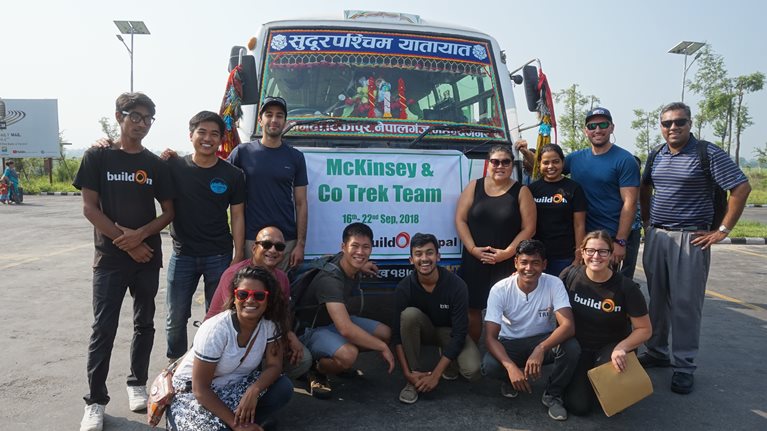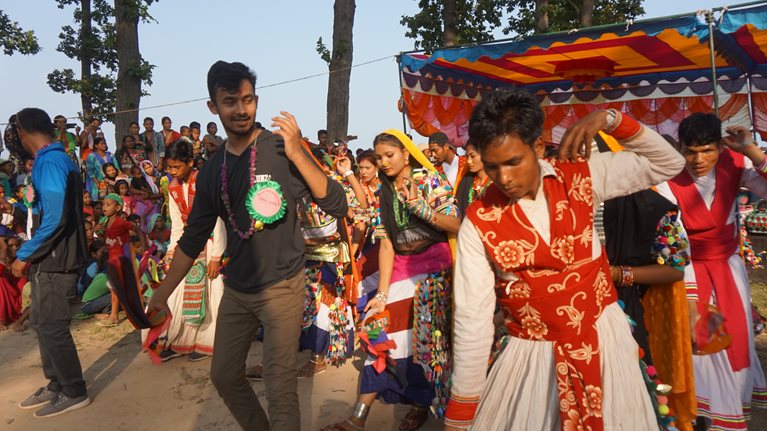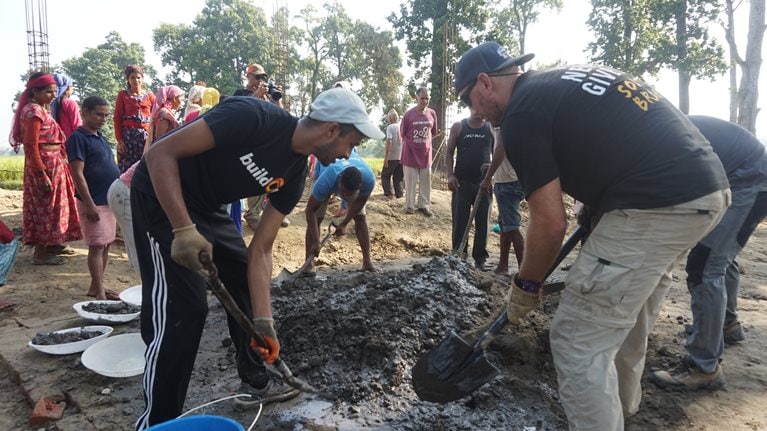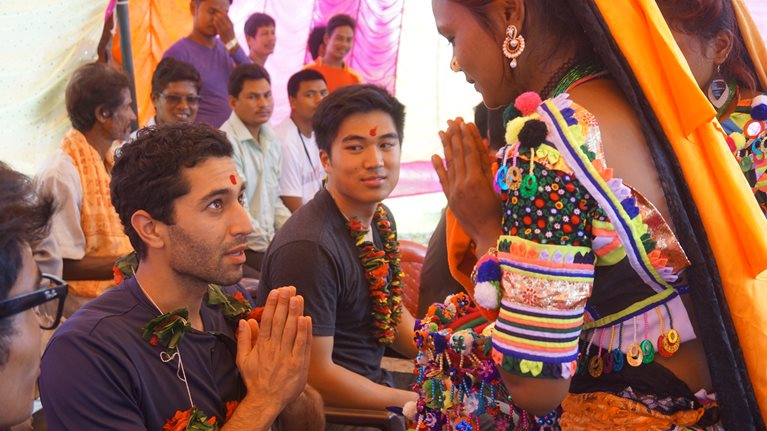McKinsey colleagues individually give back an enormous amount through volunteer service and pro-bono work.
About a year-and-a-half ago, a few of my colleagues and I developed a relationship with BuildOn, a non-profit striving to break the cycle of poverty, illiteracy and low expectations. A dozen of us from the New York, Stamford and New Jersey offices helped students from the School of Tourism & Hospitality in the Bronx build their first resumes. We loved working with them. We were simultaneously inspired by their passion to succeed and humbled by the determination with which they tackled challenges in their lives.
We looked for more opportunities to get involved and participated in more service programs in San Francisco and New York. Then we decided to work with BuildOn to build a school in a developing nation.

The biggest challenge was raising more than $50,000 to pay for the school. We encouraged colleagues to contribute as part of the firm-wide annual Gift of Hope campaign in November and December. The global managing partner at the time, Dominic Barton, and some senior leaders in the US generously pledged to match any donations we collected with personal donations. That did the trick and we were able to reach our goal.
For months we planned, then in September ten of us gathered in the Kathmandu airport to board a short flight to Dhangadi in Western Nepal. After a majestic 45 minutes of flying along the Himalayas, we landed, had lunch, and enjoyed running water, air-conditioning and wi-fi for the last time for a week.

After a 90 min bus ride, we arrived in the village of Mudkatti amidst much fanfare. Villagers played drums and danced in traditional Nepali garb. They were ecstatic to have a school built near their homes. After nearly four hours of celebration, the McKinsey team, the village leaders and members of the community lined up to sign a covenant. The covenant was the community’s promise to embrace education, send their children – girls and boys – to the school and include women in its leadership. Many members of the community could not sign their names, so they scribbled, scratched or simply left a thumbprint to signify their commitment to the education of the children.

The next morning, we started digging the foundation – a series of 14, six-foot-deep holes. We worked side by side with the men and women from the village who made us feel woefully inadequate as they dug significantly faster, without breaking a sweat or getting a speck of dirt on their clothes. I, on the other hand, looked like a mud monster after 15 minutes.

We spent our afternoons and evenings learning about Nepalese culture from the townspeople and our host families. My host family was headed by a patriarch who served on the village council and had been prominent in lobbying for the school. He wanted more for his two-year-old grandson, nicknamed Police because he always got into trouble. The rest of the family included 13 people, a dog, two cows, a buffalo, several goats and chickens. They lived in four bedrooms plus a shed for the animals and squeezed into three while my colleagues and I were there so a few of us could have an entire bedroom.
I learned Uno and Jenga transcend cultures and are fun no matter what language you speak. I learned how to fish in the nearby stream at night. We had open conversations about everything from gender roles to healthcare. When it was time to say goodbye, we were emotional – we had bonded so tightly through this experience.
Overall, my colleagues and I left Nepal humbled. We had built a school to change a community, but we were the ones who had been transformed.
